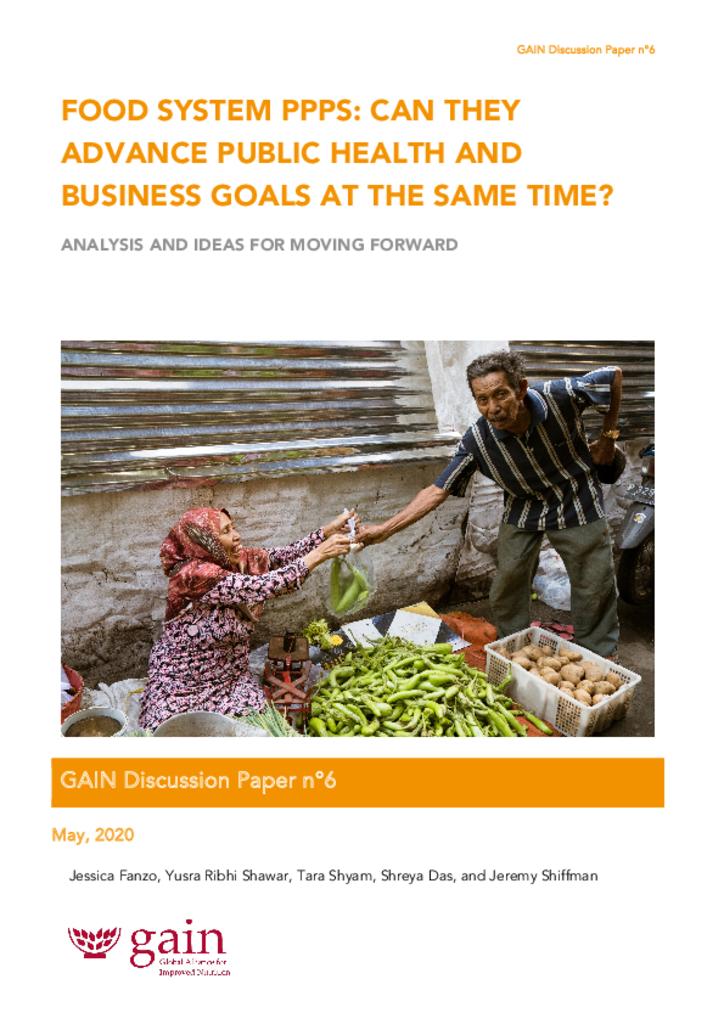This paper considers whether Public-Private Partnerships (PPPs) focused on improving diets and nutrition can simultaneously advance public health nutrition goals and business goals. Discussion around the efficiency of PPPs is polarised in the field of nutrition: they are seen to have considerable potential to improve diet and nutrition outcomes by harnessing resources, reach, relationships and knowledge, but there is also some mistrust of private-sector actors and their motives.
There has been little published on how PPPs operate in practice for diet and nutrition outcomes – i.e., how these partnerships are formulated and structured and how conflicts of interest are prevented, minimised, and managed. Accordingly, little is understood concerning the factors that shape PPPs’ ability to improve diet and nutrition population outcomes.
This paper explores the following questions: What is it about food and diets that makes it especially challenging for the public sector to engage and work with the private sector and, in turn, formulate PPPs? Why is there a lack of evidence and documentation about what has and has not worked with PPPs in the food systems domain? How do we address impediments and incentivise the creation of more PPPs that have potential to advance diet and nutrition outcomes whilst remaining commercially sustainable? How do we negotiate the complex nutrition terrain to make progress?
The paper offers a range of insights, solutions and guidelines on how to increase the likelihood of PPPs being impactful and accountable.
